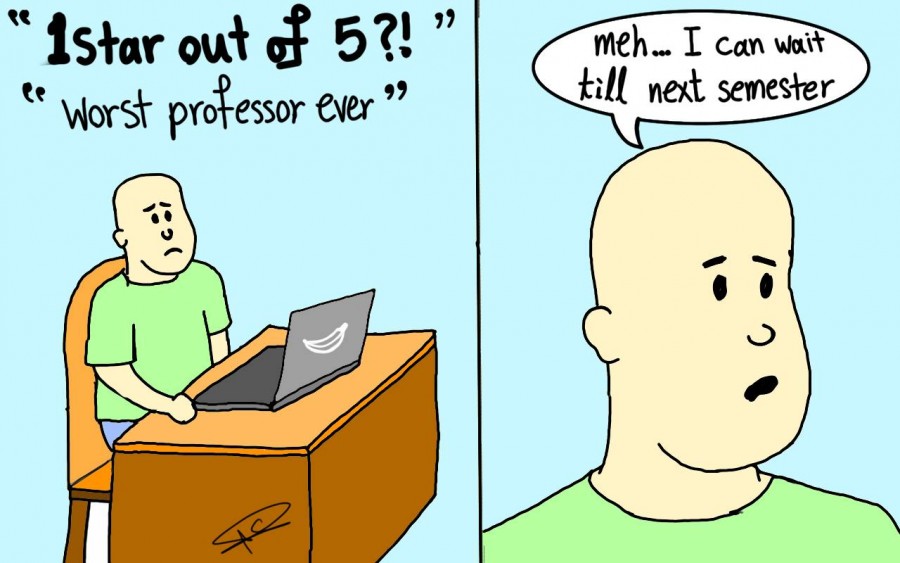When registering for classes, college and university students alike continuously rely on Rate My Professors reviews to dictate which classes he or she should enroll in.
But just how accurate are these reviews?
What I have discovered is that these reviews are not always useful nor are they reliable. These reviews are comprised of three categories: helpfulness, clarity and easiness.
Additionally, students have the ability to assign professors a chili pepper icon to rate the attractiveness of the professor. But should students be focusing on the aesthetics of a teacher when comprising a review of his or her teaching expertise? Probably not.
When reading these remarks, students should read each review with a grain of salt.
Virginia Hefferman, staff writer for the New York Times, notes that the identities of students are never actually verified on the site, questioning the credibility of the reviewer. Students expect the reviews to be from other students who previously had the specific professor, but the truth of the matter is it can be anyone, making it a necessity to determine which reviews seem credible or not.
If a teacher has one low rating among the multiple positive reviews, more often than not, the negative reviewer is not credible. That bad review is most likely a reflection of the student’s lack of effort and not the professor’s inability to teach.
In certain cases, students expect a class to be easy based on the score of the teacher and become astonished when they genuinely have to work for a good grade. Their impression of the teacher is that he or she is a harsh grader when the reality is that college requires hard work to achieve a favorable grade.
“Students should not base decisions about their education on (Rate My Professors reviews) and professors should not get ideas from it, believing (mistakenly) that it represents the wisdom of crowds,” Hefferman wrote.
The reviews are simply fabricated representations.
That being said, sometimes professors are accurately rated on the website. I remember reading a review once that described the professor as the best that student had ever taken at SDSU. I didn’t think too much of the review but ended up enrolling in that class anyways. Sure enough, that professor transformed my way of thinking by the end of the semester — he even inspired me to change my major.
Then again, we have all had some sort of experience where the class seems appealing and fits perfectly with our schedule but the professor has horrible reviews.
What do we do? We take it anyways and by the end of the semester we are completely dreading that decision (and our lives).
Frankly, picking a teacher you might love or hate is all a matter of luck and personal opinion, but you will never be able to form your own opinion about a teacher unless you give that teacher a shot (without looking up his or her reviews).
If you can’t resist Rate My Professors, then I encourage you to:
“Seek good teachers rather than simply seeking easy teachers and to be fair when making comments,” English teacher William B. Harrison said in a letter to Slate.










